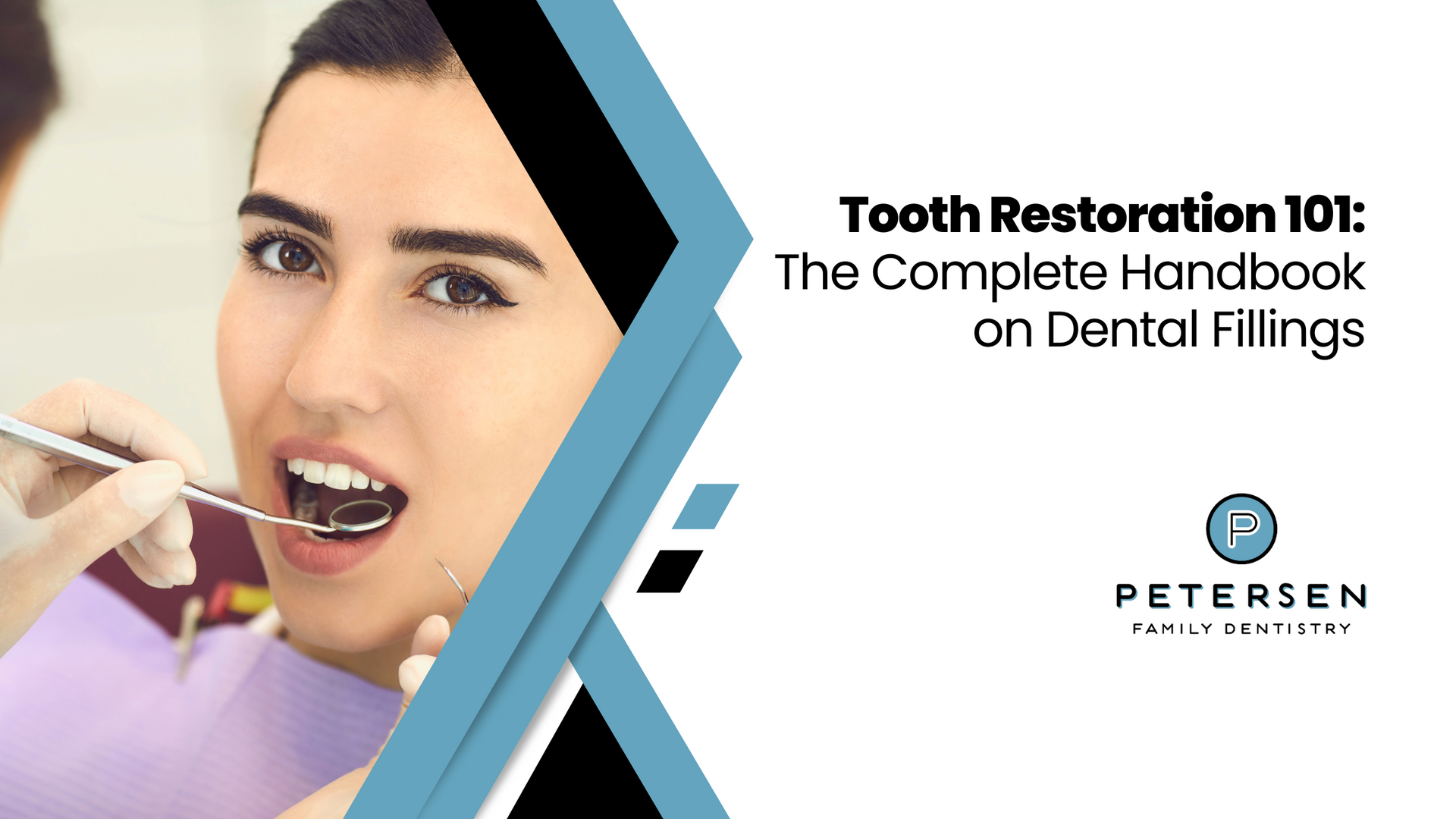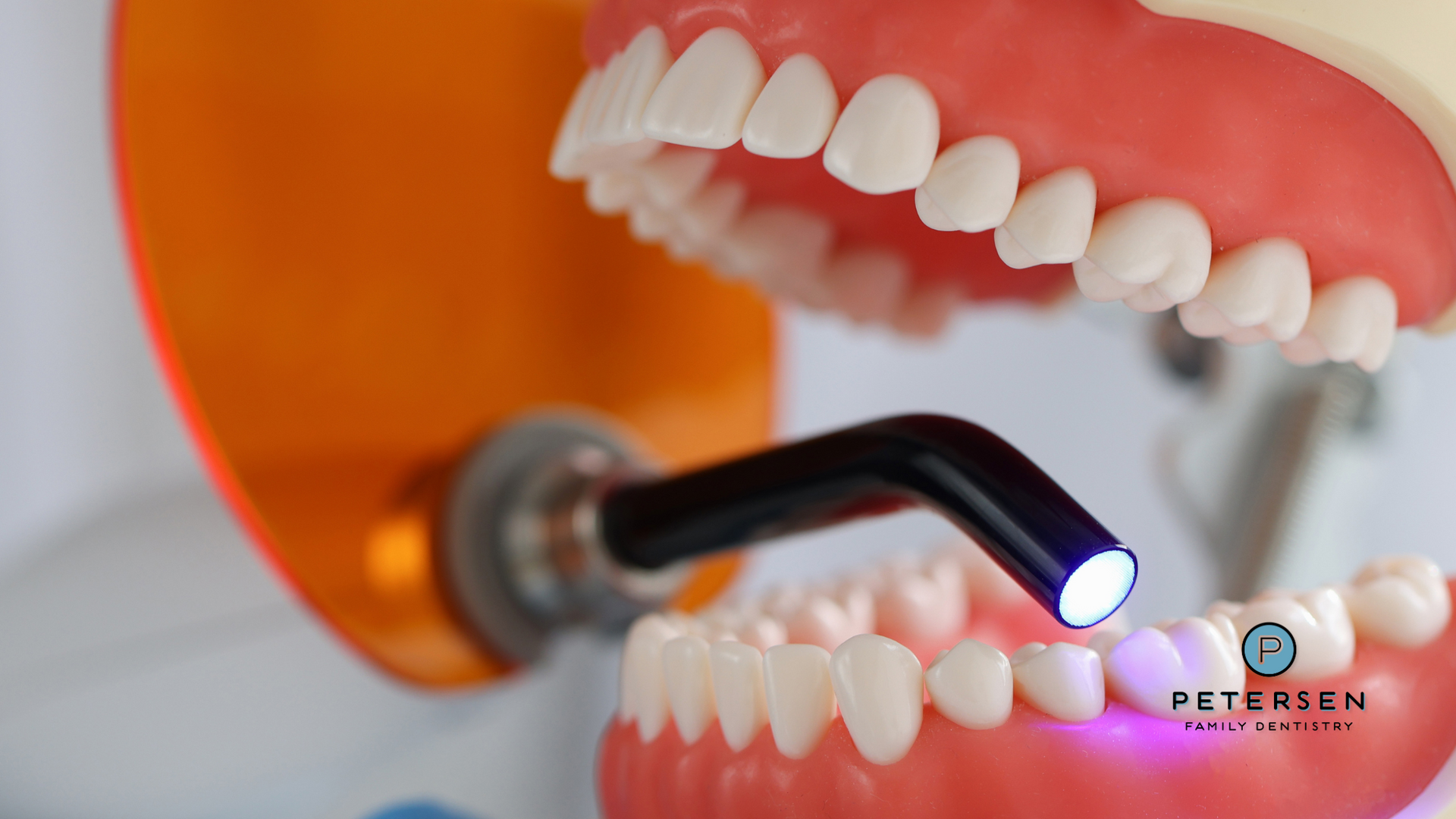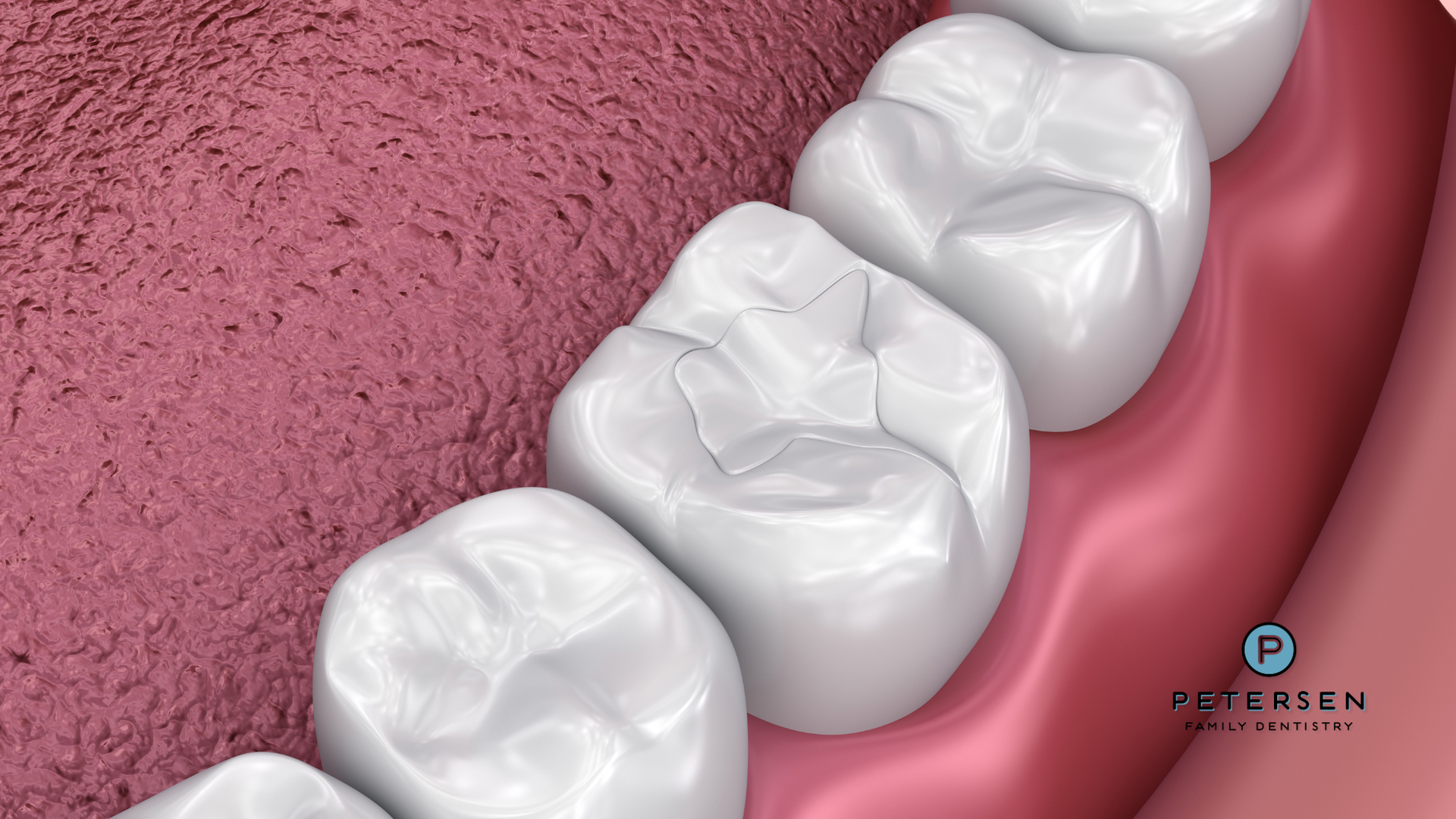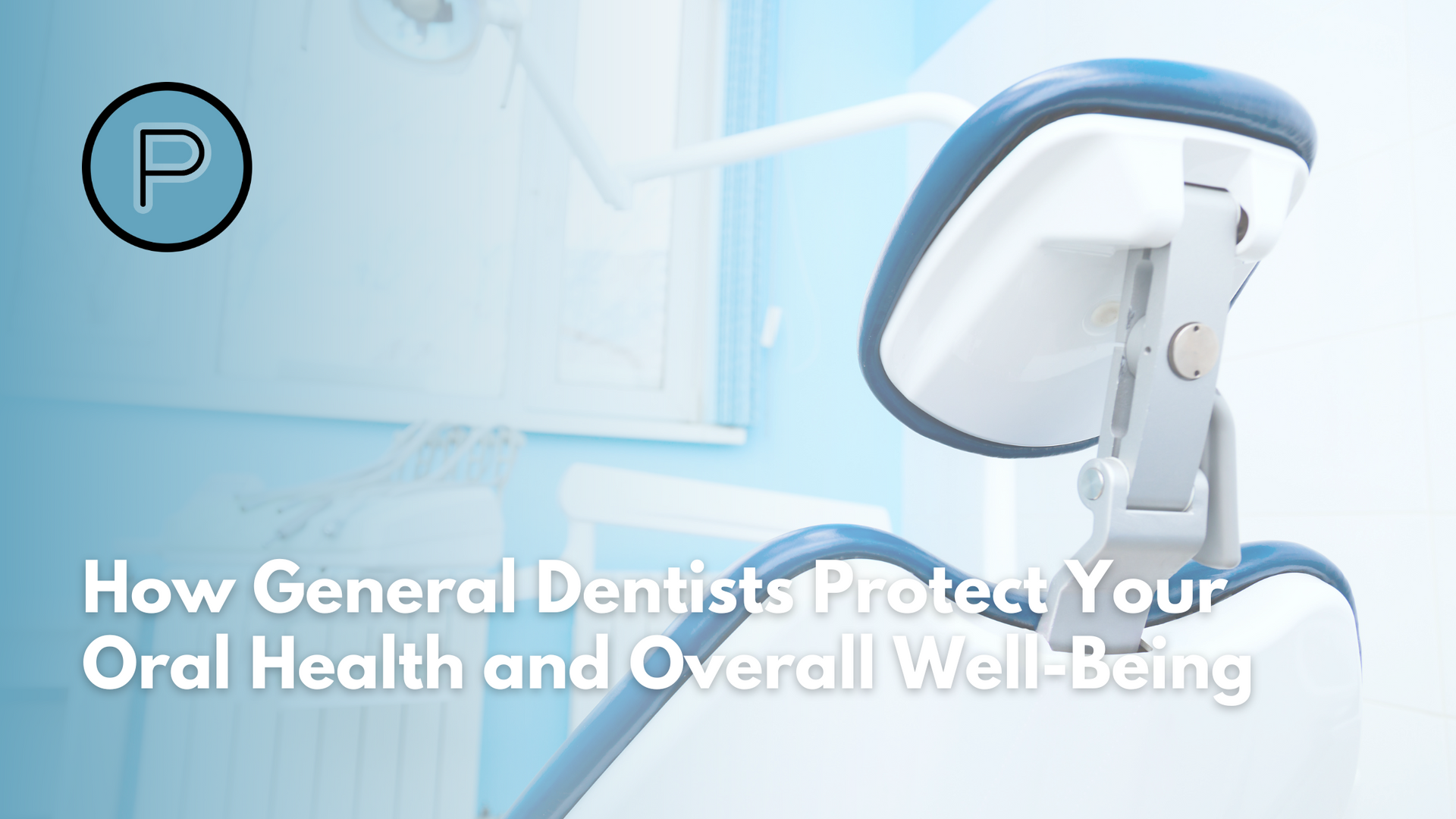Tooth Restoration 101: The Complete Handbook on Dental Fillings

Source: Dr. Marketing
A bright smile can light up a room, but maintaining healthy teeth requires proper care and attention. Dental fillings play a vital role in preserving oral health, restoring damaged teeth, and ensuring that your smile remains radiant. In this comprehensive guide, we'll delve into the world of dental fillings, exploring their importance, types, procedures, aftercare, and benefits. So, let's embark on a journey to understand how dental fillings at Petersen Family Dentistry contribute to a healthy, confident smile.
Understanding Dental Fillings

Dental fillings are commonly used to treat cavities, decay, and minor tooth fractures. They help restore the tooth's structure, function, and appearance. Fillings are typically made from various materials, each with its unique advantages and applications. The most common types of dental fillings include amalgam (silver fillings), composite resin (tooth-colored fillings), ceramic, and glass ionomer.
The Filling Procedure: What to Expect

Receiving a dental filling is a routine, efficient, and virtually painless procedure designed to restore your tooth's health and function. The process begins with ensuring your utmost comfort. The experienced dentist will administer a local anesthetic, numbing the affected area to eliminate any sensation during the procedure. This ensures that you feel at ease throughout the entire process, allowing the dentist to work efficiently and painlessly.
Once the area is numb and you are comfortable, the dentist gently removes the decayed or damaged portion of the tooth using specialized instruments. This step is crucial as it eliminates the source of the problem, preventing further deterioration of the tooth. The dentist then meticulously cleans the cavity, removing any remaining debris and bacteria, ensuring a clean and bacteria-free environment for the filling.
With the cavity cleaned, the next step involves filling the space with the chosen material. Dentists offer various filling options, such as amalgam (silver fillings), composite resin (tooth-colored fillings), ceramic, or glass ionomer, allowing you to select the material that best suits your needs and preferences. The chosen filling material is carefully placed into the cavity, layer by layer, ensuring a snug fit and optimal support for the tooth's structure.
Precision is key during the filling process. The dentist skillfully sculpts and shapes the filling to match the contours of your natural tooth, ensuring a seamless blend between the filling and the surrounding enamel. This meticulous shaping not only restores the tooth's functionality but also contributes to its aesthetic appeal.
Once the filling is in place and shaped to perfection, the dentist polishes it, leaving it smooth and glossy. This not only enhances its appearance but also minimizes the risk of plaque accumulation, promoting better oral hygiene in the treated area.
Throughout the procedure, the dental team prioritizes your comfort and well-being. They provide clear instructions, answer any questions you might have, and ensure you are relaxed and informed every step of the way. The entire process is designed to be quick and efficient, allowing you to resume your daily activities with minimal disruption while enjoying the benefits of a restored, healthy smile.
Benefits of Dental Fillings

- Restored Functionality: Dental fillings restore the tooth's functionality, allowing you to bite, chew, and speak with ease.
- Prevention of Further Damage: By sealing off cavities and fractures, fillings prevent the spread of decay and protect the tooth from additional damage.
- Improved Aesthetics: Tooth-colored fillings blend seamlessly with your natural teeth, enhancing your smile without drawing attention to dental work.
- Preservation of Natural Teeth: Fillings preserve the natural structure of your teeth, preventing the need for more extensive treatments like extractions or crowns.
- Enhanced Oral Health: By eliminating decay, fillings contribute to overall oral health, reducing the risk of gum disease and other dental problems.
How Long Do Fillings Last?
The longevity of dental fillings depends on several factors, including the type of filling material used, the location of the filling in the mouth, and your oral hygiene habits. On average, dental fillings can last anywhere from 5 to 15 years or even longer with proper care. Amalgam fillings, known for their durability, can endure for up to 15 years or more, while composite resin fillings, though aesthetically pleasing, may need replacement every 5 to 10 years. Regular dental check-ups are essential to monitor the condition of your fillings and detect any signs of wear or damage early on. Maintaining good oral hygiene practices, such as brushing, flossing, and regular dental cleanings, significantly contributes to the longevity of your fillings. If you notice any discomfort, sensitivity, or changes in your bite, it's crucial to consult our dentist at Petersen Family Dentistry promptly, as these could be signs that your filling needs to be examined or replaced, ensuring your smile remains healthy and vibrant.
Aftercare and Maintenance

Proper aftercare ensures the longevity of dental fillings and maintains your oral health. Here are some essential tips:
- Maintain Oral Hygiene: Brush your teeth at least twice a day, floss daily, and use mouthwash to keep your mouth clean and free from plaque buildup.
- Regular Dental Checkups: Schedule regular dental appointments for professional cleanings and checkups. Your dentist can monitor the condition of your fillings and address any concerns promptly.
- Avoid Certain Foods: Limit your intake of sugary foods and beverages, as they can contribute to tooth decay. Additionally, refrain from biting hard objects to prevent damage to your fillings.
What Should I Do If I Think I Need A Filling?
If you suspect that you might need a dental filling, it's essential to take prompt action to prevent further complications and maintain your oral health. The first step is to schedule an appointment with our dentist. During your visit, the dentist will conduct a thorough examination of your teeth, which may include X-rays to assess the extent of the damage. If a cavity or tooth decay is detected, your dentist will discuss the available treatment options, including dental fillings. Don't hesitate to ask questions and express any concerns you might have. Your dentist will explain the procedure, and the type of filling material suitable for your case, and address any worries you may be experiencing. Trust your dentist's expertise and recommendations, as they will tailor the treatment to ensure the best possible outcome for your dental health. Remember, early intervention can prevent the problem from worsening, making the process of getting a filling a proactive step towards maintaining a healthy and confident smile.

Dental fillings are a fundamental aspect of modern dentistry, enabling individuals to maintain their smiles' beauty and functionality. By understanding the importance of fillings, the types available, the procedure, and proper aftercare, you can ensure your oral health and preserve your radiant smile for years to come. Don't hesitate to consult with our dentist in Broomfield, Colorado if you suspect you may need a filling, as early intervention can prevent further complications and promote a healthier, happier you.
A confident smile starts with healthy teeth and the right dental care!


We are the local Broomfield dentist near you!
Feel Good Dentistry
Request Your Next Dental Appointment
We look forward to seeing you soon!
Please note, we will try our best to accommodate your schedule.
Thank you so much for contacting our dental practice. While we strive to respond to all inquiries right away, we may be away from the desk helping a patient or out of the office. We will do our best to reach back to you shortly.
Please note, if this is a dental emergency, it would be best to call our practice as this is the fastest way to reach us (720) 308-9798.
Please try again later
Broomfield Dentist
We understand that trying to find a nearby dentist you can trust is difficult, that is why we make it easy for you to work with us.
(720) 308-9798
3303 W 144th Ave, Suite 100
info@pfamilydentistry.com
Helpful Links
Dental Practice Hours
- Monday
- Closed
- Tuesday
- -
- Wednesday
- -
- Thursday
- -
- Friday
- -
- Saturday
- Closed
- Sunday
- Closed
All Rights Reserved | Petersen Family Dentistry
All Rights Reserved | Petersen Family Dentistry
Dentist Website Diagnosed, Treated, and Cured by Dr. Marketing Inc

